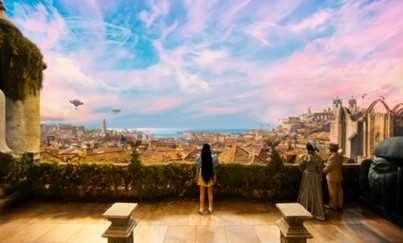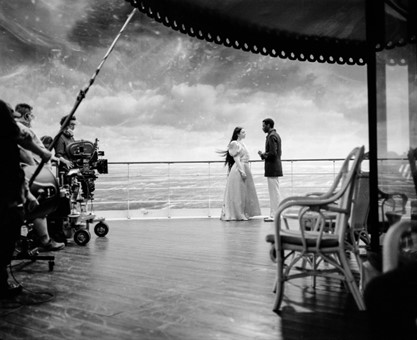
For the Trailer of Poor Things Film: POOR THINGS | Official Trailer | Searchlight Pictures
Keywords: Poor Things, Yorgos Lanthimos, Emma Stone, Willem Dafoe, absurd comedy, drama, film review, cinema, film critique, male hegemony, fourth wall
The film Poor Things, directed by Yorgos Lanthimos, was released on February 9th. The director has adopted a familiar approach with his filmography by shaking the audience. Poor Things, starring Emma Stone and Willem Dafoe, tells the story of a labour pain in the 19th century. The film begins with the rescue of a woman who has attempted suicide by drowning, and her brain being replaced with her child's in her womb. The main character, Bella Baxter (Stone), opens her eyes to life, and we as the audience witness her growth. Due to the mismatch between her brain and body, Bella exhibits strange behavior from the beginning of the film. This situation, like the creator Dr. Godwin (Dafoe) and other characters, creates quite comical scenes for the audience.
As Bella grows in Poor Things, we also begin to see the world anew. Her inability to understand and question many things triggers the audience as well. Questioning many things that are "normal" is actually an assignment that the director gives to the audience throughout the movie. Especially, Bella reacts by crying for the first time in her adventure, expressing her reaction to the injustices and pains in the world. In one scene of the film, Bella asks Dr. Godwin, "Why did you do this to me?" Dr. Godwin replies, "To make you better." Deciding what is better is difficult in Poor Things. Our main character, who is forced to engage in prostitution to earn money, eventually begins to lose interest in life. However, she eventually finds a way to enjoy life, just as in real life.


Lisbon Scene Sea Scene
We cannot overlook the visuality of the film. Especially, the costumes and locations contribute significantly to the atmosphere of Poor Things. Although some of the locations are places we know in reality, they are recreated in a utopian manner.
In the film, breaking the fourth wall is also a common occurrence. Bella seems to hold us accountable as she questions life. The film keeps us awake with its color transitions and grows us. But at the same time, the director wants us to think and be an active audience.
The World Through the Eyes of Poor Things: Male Hegemonic World

Poor Things Final Scene
Another aspect of Poor Things that needs to be examined is the representations of the male hegemonic world. One of the leading figures carrying the film, Mark Ruffalo, also appears as the character Duncan. Duncan is the harshest representation of male hegemony. He does not hesitate to control other people by using his power and authority. His attitude towards women is especially exploitative. At one point in the film, he says he wants a relationship devoid of seriousness and commitment. When Bella acts accordingly, he becomes obsessively attached to her. But later, we see that all he wants is revenge. The other male characters in the film reflect different aspects of the male hegemonic world. Dr. Godwin represents the intellectual, rational, and unquestionable face of this world, while Max (Ramy Youssef) represents the more emotional and fragile -perhaps the most harmless- face of this world.
Fortunately, Bella's adventure concludes with a tremendous smile she gives us at the end. Poor Things is already etched in the audience's memory while bringing Emma Stone an Oscar. Enjoy watching it to those who will.
For my previous articles:

https://yucelkulturvakfi.org/kadinin-derdi-giseyi-yendi-lohusa
https://yucelkulturvakfi.org/olumlu-dunya-bizi-hayata-dondurdu-gise-rekoru-kirdi/
Yağmur İnce
Yücel Kültür Vakfı
Volunteer Writer
translated by
Ekremcan Bakır
YKV Content:1545